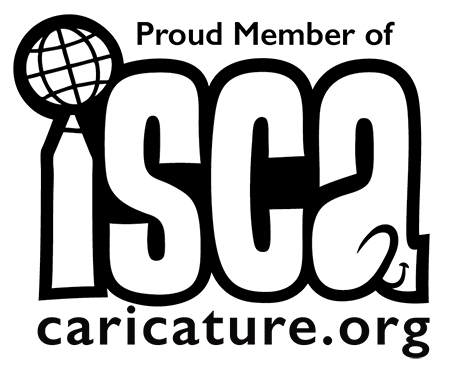Return of the Son of the Revenge of The Orphan Works Act
I’ve written several times about the Orphan Works legislation, and it’s implications on freelance illustrators. This post describes it best, but here it is in brief: The Orphan Works Act is a change to copyright law that allows any party (publishers, advertisers) to use a piece of intellectual property (a photo, illustration, cartoon, etc.) if the owner of the copyright of said piece of intellectual property cannot be identified or located. The law requires a ‘reasonable effort’ to search for the copyright owner, but does not define what a ‘reasonable search’ entails. The law also limits the money that can be recouped by the copyright owner even in they notice their copyrighted work was used without being contacted, and somehow prove the user did not make a ‘reasonable effort’ to find them.
Yes, it’s that bad. A license to steal and then claim that a “reasonable effort” was made to find the owner of the original copyright if busted.
The original bill died in congress, but it turns out it was just hibernating.
FROM THE ILLUSTRATORS’ PARTNERSHIP
It’s Back!
Just when you thought it was safe to draw a picture without putting a copyright symbol on it, the Orphan Works bill has returned.
Orphan Works “will likely be a priority…this spring” for the House Judiciary Committee, writes Andrew Noyes in the National Journal, Feb. 21, 2008
According to Noyes, “American Library Association copyright specialist Carrie Russell said her members are ‘excited about having orphan works legislation’ move this session,” adding that if it does, “‘we’ll be dancing in the streets.'” But the article notes that “last time around,” artists did a different kind of dance:
“The Illustrators’ Partnership of America argued in letters to lawmakers last time around that the bill was written too broadly and would have exposed artists’ work to infringement upon creation.”
And so it would have.
While we won’t judge the new bill until we’ve seen it, we’re still concerned that it may be written so broadly as to force artists to rely on registries or other formalities as a condition of protecting their copyrights. Forcing artists to rely on registries by exposing unregistered work to infringement is coerced registration. And coerced registration is at the heart of the orphan works debate.
Coerced registration violates the spirit of international copyright laws and trade agreements. It invites retaliation from overseas. It would turn artists into bookkeepers. It would force us to spend countless hours filing and maintaining countless copyright registrations in a futile effort to monitor infringements ?¬¢‚Äö?ᬮ” futile because no registry can ever protect artists from infringement, which can occur anytime, anywhere in the world.
Since 2006, when the first bill was called back to the shop for repairs, registries have become a hot topic among those wishing to sugarcoat it for quick passage this fall. We’ll have more to say about coerced registration in future emails. We think it will be central to the debate over Orphan Works this time around.
?¬¢‚Äö?ᬮ” Brad Holland and Cynthia Turner, for the Board of the Illustrators’ Partnership
For additional information about Orphan Works developments, go to the IPA Orphan Works Resource Page for Artists
Comments
Tom's Newsletter!
Sign up for Tom's FREE newsletter:
Categories
- Classic Rock Sketch Series (60)
- Daily Coronacature (146)
- Freelancing (173)
- General (1,630)
- Illustration Throwback Thursday (107)
- It's All Geek to Me! (53)
- Just Because… (1)
- MAD Magazine (898)
- Mailbag (691)
- Monday MADness (436)
- News (1,036)
- On the Drawing Board (160)
- Presidential Caricatures (47)
- Sketch O'The Week (811)
- Stuff from my Studio (21)
- Surf's Up Dept. (29)
- Tales from the Theme Park (17)
- Tom's MADness! (131)
- Tutorials (18)
- Wall of Shame (17)










I guess we need to ensure our signatures are clear and placed on everything we produce the best we can, so that if a search for the creator of the work is required, it should be obvious who that person is. Of course, abuse of this is open and bound to happen and that is a great shame for all us creative professionals.